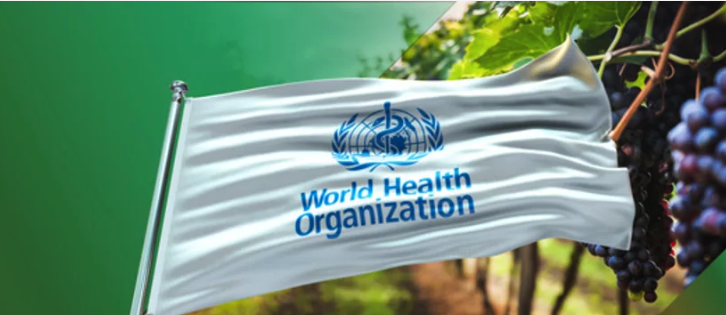
Should the government fund the World Health Organization?
Introduction to the World Health Organization (WHO)
Welcome to our blog post where we dive into the intriguing debate surrounding government funding for the World Health Organization (WHO). In these challenging times, with global health concerns at the forefront of everyone’s minds, it is crucial to examine the role and importance of this influential international organization. Join us as we delve into its history, analyze arguments for and against government funding, explore the impact of inadequate financial support on WHO’s work, and discuss possible solutions. So grab a cup of coffee and let’s embark on this thought-provoking journey!
History and purpose of the WHO
The World Health Organization (WHO) has a rich history that dates back to its establishment in 1948. Its purpose is to serve as the leading international organization for global health issues, with a primary goal of promoting health and preventing diseases worldwide.
Since its inception, the WHO has been at the forefront of addressing public health challenges across borders. It has played a pivotal role in coordinating efforts to combat infectious diseases such as polio, malaria, and HIV/AIDS. Additionally, the organization focuses on improving maternal and child health, tackling noncommunicable diseases like cancer and diabetes, promoting mental health, and strengthening healthcare systems around the world.
One key aspect of the WHO’s work is its commitment to providing evidence-based guidance and technical expertise to member countries. Through research initiatives and collaboration with various stakeholders including governments, academia, civil society organizations, and other UN agencies, it strives to develop policies that can effectively address global health issues.
Furthermore, the WHO plays an essential role in emergency response during outbreaks or natural disasters. By mobilizing resources swiftly and efficiently, it helps countries manage crises effectively, and prevent further spread of illnesses. Through their support, the WHO assists countries in building capacity to detect, respond, and recover from emergencies more effectively.
This strengthens global preparedness and safeguards populations against future threats.
Overall, the history and purpose of the WHO are deeply rooted in its mission to ensure better health for everyone, everywhere.
By working closely with governments, stakeholders, and communities globally, the organization continues to strive towards achieving this noble objective.
Current funding for the WHO
The World Health Organization, or WHO, is an international organization that plays a crucial role in promoting and protecting global health. But how is it funded? Let’s take a closer look.
The funding for the WHO primarily comes from member states and assessed contributions based on their wealth and population size. In addition to these core funds, the organization also receives voluntary contributions from governments, foundations, organizations, and individuals.
However, despite its critical mandate and responsibilities, the current funding for the WHO falls short of what is needed to effectively address global health challenges. This has been a longstanding concern that has gained even more attention amidst the ongoing COVID-19 pandemic.
Insufficient funding can hinder the WHO’s ability to respond swiftly to emerging health crises, conduct vital research projects, provide technical support to countries in need, and carry out essential programs aimed at improving healthcare systems worldwide.
Furthermore, inadequate funding limits the organization’s capacity to recruit top-notch experts in various fields of public health or invest in cutting-edge technologies necessary for effective disease surveillance and response.
Without proper financial resources, there is a risk that important initiatives may be delayed or scaled back significantly. This can have severe consequences on efforts to combat diseases such as malaria or tuberculosis and impede progress towards achieving universal health coverage globally.
In order for the WHO to fulfill its mission effectively and efficiently tackle pressing global health issues like pandemics or antimicrobial resistance head-on, it requires sufficient financial support from governments around the world. Only with robust funding can this vital organization continue its work of safeguarding human well-being on a global scale.
So while current funding levels are not optimal given today’s complex global healthcare landscape; recognizing this shortfall allows us an opportunity not only better our understanding but also create solutions going forward
Arguments for government funding of the WHO
There are a number of arguments for why and why the government should not fund the world health organization.
Arguments for funding the WHO include:
1. Global Health Security: The World Health Organization plays a crucial role in ensuring global health security. By providing funding to the WHO, governments can help strengthen international cooperation and coordination in responding to public health emergencies. This is especially important in today’s interconnected world, where diseases can easily cross borders.
2. Expertise and Resources: The WHO has a wealth of expertise and resources that are essential for addressing complex health challenges worldwide. With government funding, the organization can conduct research, develop guidelines, and provide technical assistance to countries facing various healthcare issues.
3. Strategic Investments: Investing in the WHO is a strategic move for governments as it helps prevent outbreaks from becoming full-blown pandemics. Through early detection systems, surveillance programs, and capacity-building initiatives, government-funded support allows the WHO to act swiftly when faced with emerging threats.
4. Multilateral Collaboration: Government funding reinforces multilateral collaboration among nations by pooling resources together through the WHO platform. This collective effort improves information sharing, resource allocation, and knowledge exchange on best practices in healthcare delivery.
5. Global Equity: Funding from governments ensures that all nations have access to vital healthcare services regardless of their economic status or geographic location.
6. Cost-Effectiveness:The financial investment made by governments towards the WHO yields long-term cost-effectiveness due to its ability to prevent disease outbreaks before they become widespread crises.
By supporting government funding for the World Health Organization (WHO), we recognize its indispensable role as a global leader in promoting health equity and responding effectively to global health risks.
Arguments against government funding of the WHO
Now that we have discussed some of the arguments for the government funding the WHO lets look at some of the arguments against funding it:
1. Mismanagement and corruption: One argument against government funding of the WHO is the concern over mismanagement and corruption within the organization. Critics argue that without proper oversight, funds may be misused or diverted for personal gain rather than being used to improve global health outcomes.
2. Lack of accountability: Another point raised by those opposed to government funding is the perceived lack of accountability within the WHO. Some believe that without financial contributions from governments, there would be greater transparency and a stronger focus on addressing public health issues directly.
3. Political influence: Government funding can also bring about concerns regarding political influence on decision-making processes within the WHO. Opponents argue that reliance on government funds could potentially compromise the organization’s ability to act independently and impartially in matters related to public health.
4. Funding priorities: Critics suggest that relying solely on government funding might lead to skewed priorities in resource allocation by favoring certain countries or specific health issues over others. They argue that diversified sources of funding allow for a more balanced approach towards global healthcare challenges.
5. Alternatives exist: Some opponents contend that other international organizations or private foundations could adequately fill any gaps left by reduced or eliminated government funding for the WHO. This viewpoint suggests exploring alternative options rather than relying solely on governmental support.
It is important to note these arguments against government funding as they contribute to an ongoing debate surrounding how best to ensure sustainable financing for global health initiatives while upholding integrity and effectiveness in achieving tangible results.
Impact of lack of government funding on the WHO’s work
The impact of lack of government funding on the World Health Organization’s work is significant. Without adequate financial support, the WHO faces numerous challenges in fulfilling its mission to promote health and well-being worldwide.
Limited funding hampers the organization’s ability to respond effectively to global health emergencies. In situations like outbreaks or pandemics, timely action is crucial, but without sufficient resources, the WHO may struggle to coordinate and provide necessary assistance to affected countries.
Furthermore, reduced funding restricts the WHO’s capacity for research and development. This limits their ability to gather data, conduct studies, and develop innovative solutions for emerging health issues. As a result, advancements in medical treatments and interventions are hampered.
Insufficient funds also hinder the organization’s efforts in promoting healthcare access in low-income countries. The WHO plays a vital role in advocating for affordable and equitable healthcare systems globally. However, without proper financial backing from governments around the world, progress towards universal health coverage becomes challenging.
Moreover, inadequate funding jeopardizes ongoing programs aimed at addressing major public health concerns such as HIV/AIDS prevention or immunization campaigns. These initiatives require sustained investment over time to achieve meaningful outcomes that positively impact people’s lives.
Lack of government funding weakens partnerships with other organizations working towards similar goals. Collaborations are essential for sharing knowledge and resources efficiently; however without adequate financial support from governments across nations these collaborations become strained.
The World Health Organization relies heavily on government funding to carry out its critical work effectively. Insufficient financial support undermines their ability to respond swiftly during emergencies, hinders research capabilities, limits progress towards universal healthcare access, threatens ongoing programs,
and strains partnerships.
It is imperative that governments recognize the importance of investing in global health through supporting organizations like WHO if we strive for healthier populations worldwide
Possible solutions to address funding issues
One potential solution to address funding issues faced by the World Health Organization (WHO) is increased contributions from member states. Currently, member states provide voluntary contributions, but these are often not enough to meet the WHO’s needs. Encouraging countries to contribute more and ensuring equitable distribution of financial resources could help alleviate funding challenges.
Another option is exploring partnerships with non-governmental organizations (NGOs) and private sector entities. Collaborations with NGOs can bring in additional funds and expertise, while engaging the private sector can tap into their resources for innovative solutions. However, it’s essential to maintain transparency and ensure that these partnerships align with the WHO’s mission and values.
Furthermore, advocating for international solidarity in healthcare financing is crucial. By emphasizing the importance of global health security and shared responsibility, governments may be more willing to allocate funds towards supporting the WHO’s work. This approach requires diplomatic efforts and building consensus among nations.
Additionally, exploring alternative funding mechanisms such as a global health tax or levies on certain sectors like tobacco or alcohol could provide sustainable revenue streams for the WHO. These strategies have been successful in other areas like climate change mitigation.
Improving internal efficiencies within the organization can also play a role in addressing funding issues. Streamlining processes, reducing bureaucracy, and optimizing resource allocation can help make better use of available funds.
In summary,
There are several possible solutions that could help address funding issues faced by the World Health Organization (WHO). Increasing member state contributions, fostering partnerships with NGOs and private sector entities, promoting international solidarity in healthcare financing efforts, considering alternative funding mechanisms such as taxes or levies on specific industries like tobacco or alcohol consumption – all these approaches have potential benefits. Improving internal efficiencies within the organization itself is another avenue worth exploring. Ultimately though, Finding sustainable long-term solutions will require collaboration between governments worldwide along with strategic planning at both national and international levels
Conclusion
After examining the history, purpose, and current funding situation of the World Health Organization (WHO), it is clear that government funding plays a crucial role in supporting its work. While there are arguments against government funding of the WHO, including concerns about political influence and mismanagement of funds, the impact of lack of government funding on global health efforts cannot be ignored.
Without adequate financial support from governments worldwide, the WHO would struggle to effectively respond to public health emergencies, conduct research and development for new treatments and vaccines, provide technical assistance to countries in need, and coordinate international efforts to combat diseases.
In order to address the funding challenges faced by the WHO, it is essential for governments to increase their contributions. Additionally, alternative sources of funding such as private donations or partnerships with philanthropic organizations could also help alleviate some of the financial burden.
Investing in global health through government funding for organizations like WHO not only ensures better preparedness for future pandemics but also promotes equity in healthcare access across nations. The COVID-19 pandemic has highlighted how interconnected our world is when it comes to health crises. It is in everyone’s best interest to support an organization like WHO that works tirelessly toward achieving global health security and improving well-being worldwide.
As we look ahead towards a more uncertain future filled with emerging infectious diseases and other healthcare challenges yet unknown, one thing remains clear: continued investment in organizations like WHO is vital for safeguarding humanity’s collective well-being.


I have been surfing online more than 3 hours today, yet I never found any interesting article like yours.
It’s pretty worth enough for me. Personally, if all site owners and bloggers made good content as you did,
the web will be much more useful than ever before.